The Narrow Road to Oku Okuno hosomichi おくのほそ道
奥の細道 from Spring to Autumn of 1689 (元禄2年 Genroku 2nd year)
Matuo Basho 松尾芭蕉 born in 1644, died in 1694
English version of the Haiku: cited from Donald L. Keene, 鬼怒鳴門
Chinese version by K. Kawamura ; Fluting by K. Ichihashi ♫
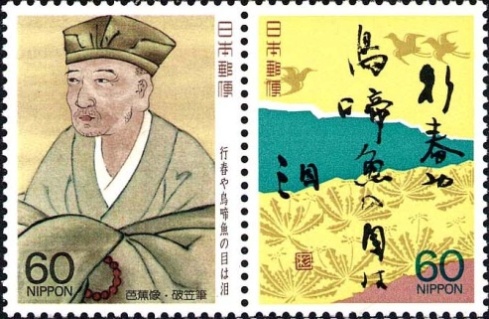
行春や 鳥啼魚の 目は泪行春哉 鳥啼鳴 魚目泪 |
Spring is passing by! Birds are weeping and the eyes Of fish fill with tears. yu ku ha ru ya : yuku 行く passing away; haru 春 Spring to ri na ki uwo no : tori 鳥 naki; naku 啼 cry, weep; uwo 魚 fish me wa na mi da : me 目 eyes; namida 涙 泪 tears |
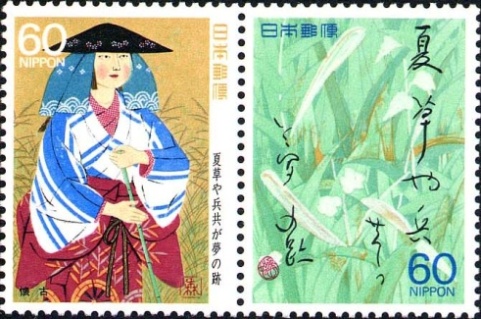
夏草や
|
The summer grasses---- Of brave soldiers’s dreams The aftermath. na tsu ku sa ya : natsu 夏 summer; kusa 草 grass; ya哉 exclamation tsu wa mo no do mo ga: tsuwamono (勇)兵 soldiers , domo 達 plural form yu me no a to : yume 夢 dream ; ato 跡 remains, ruins |
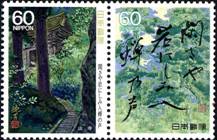
閑さや 岩にしみ入 蝉の声閑静哉 染入岩 蝉的声 |
How still it is here ----- Stinging into the stones, The locusts' trill. shi zu ka sa ya : shizuka 閑 静 still, calm i wa ni shi mi i ru : iwa 石 岩 stones, rock ; shimiiru 染入 sting into se mi no ko e : semi 蝉 locust ; koe 声 鳴 voice |
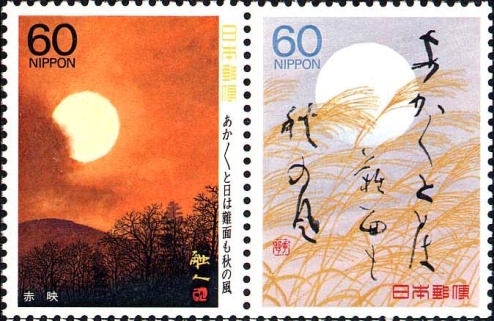
あかあかと 日は
|
Redy, redy The sun shines heartlessly, but The wind is autumnal. a ka a ka to : aka 赤 red hi wa tsu re na ku mo : hi 日, 太陽 sun; tsurenai 難面 heartless, unkind, without pity a ki no ka ze : aki 秋 autumn ; kaze 風 wind |
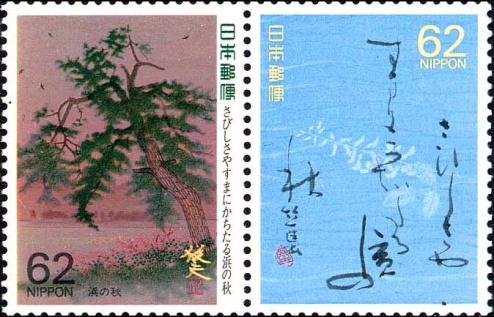
|
How lonely it is! Even lonelier than Suma, Autumn at this beach. sa bi shi sa ya : sabishi 寂しlonely su ma ni ka chi ta ru : Suma 須磨 region of fine landscape scenery; kachi かちmore ha ma no a ki : hama 浜 beach; aki 秋 autumn |
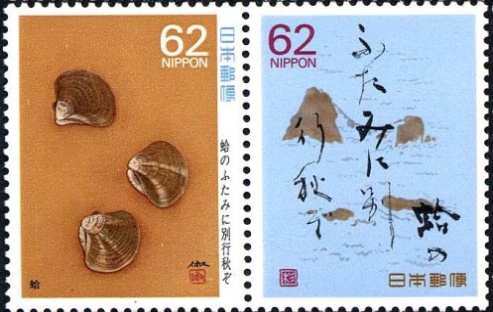
蛤の
|
Dividing like clam And shell, I leave for Futami--- Autumn is passing by. ha ma gu ri no : hamaguri 蛤 clam fu ta mi ni wa ka re : Futami 二見 name of a town; wakare 別 leave for yu ku a ki zo : yuku 行 passing by, go away; aki 秋 autumn |